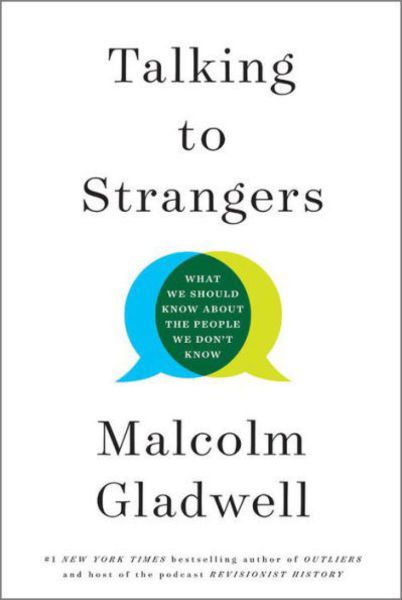BOOKS: Talking to Strangers: Malcolm Gladwell
Published 10:00 am Saturday, September 28, 2019

- Talking to Strangers
We don’t understand each other.
We know that. We read Facebook, watch a cable news channel that does not fit our political orientation, witness and experience misunderstandings in traffic, in the grocery line, at gas pumps.
We know we don’t understand each other.
Especially strangers.
Malcolm Gladwell continues his remarkable trend of capturing something about society that we all realize but he leads readers on a journey that has us seeing what we know in new and different ways.
Gladwell has done it with “Blink,” “Outlier,” “David and Goliath” and now with “Talking to Strangers.”
The latest book boils down the idea that people are built to default to truth. If we talk to someone face to face, we tend to believe them, whether it’s Neville Chamberlain talking to Adolf Hitler, or a financial investigator talking to Bernie Madoff, or a judge talking to a murder suspect about bail, etc.
People default to the truth and they default to expectations.
If a person stammers, is defensive and twirls her hair, we tend to think she is a liar because of her reactions even if that’s just characteristics of her personality and she’s telling the truth. Yet, Hitler was smooth and Chamberlain believed Hitler had no interest in war; Winston Churchill never met Hitler but understood exactly what Hitler planned based on his actions, speeches and writings.
Amanda Knox did not act as expected to her roommate’s death in Italy, Gladwell writes, and even though there was no physical evidence linking her to the crime, her unconventional reactions to death led to her arrest and conviction – which was eventually overturned.
So, people default to truth and they default to expectations which means horrible things happen; but, even when people fail to recognize a Hitler or a Madoff, defaulting to truth allows society to function, Gladwell writes.
Except when it doesn’t.
When everyone is assumed to be a liar or have ulterior motives or is suspect, society doesn’t work and horrible things happen, too.
Gladwell gets a lot deeper into these themes, and other supporting themes, based on several cases from recent to a bit more distant history. Always interesting. Always enlightening. Portions of it likely to be controversial. Everything one expects from a Malcolm Gladwell book.
“Talking to Strangers” should be required reading for police, investigators, journalists, judges, attorneys – anyone who has to parse what may or may not be the truth and how we perceive what the truth is “supposed” to look like.
“Talking to Strangers” is a book worth knowing.





